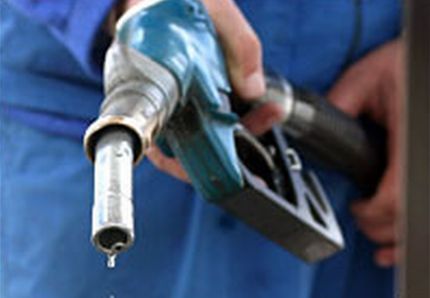Gov’t issues fuel marking rules to strengthen anti-oil smuggling drive

INQUIRER file photo
MANILA, Philippines – To strengthen its campaign against oil smuggling, the government on Friday issued the rules fully implementing the fuel marking program and grant the country’s two biggest revenue agencies police authority to go after suspected smugglers.
Joint Circular No. 1-2019 dated July 5 signed by Finance Secretary Carlos G. Dominguez III, Internal Revenue Commissioner Caesar R. Dulay, and Customs Commissioner Rey Leonardo B. Guerrero provided the specific guidelines of the fuel marking scheme already being rolled out by the bureaus of Customs (BOC) and of Internal Revenue (BIR) under the Tax Reform for Acceleration and Inclusion (TRAIN) Act since March.
Fuel marking is mandatory on all imported, manufactured and refined diesel, gasoline and kerosene, including those withdrawn from free zones to be brought into the country, the joint circular read.
Field testing will be conducted in refineries, their attached depots, gasoline stations, and other retail outlets under BIR supervision.
The BOC, meanwhile, will supervise field testing in all other areas, including depots, tank trucks, vessels, warehouses, and other fuel-transporting vehicles.
Industry players belonging to the Philippine Institute of Petroleum (PIP) earlier lobbied to limit fuel marking implementation to their import terminals and refineries as they wanted “minimal disruptions within oil companies’ facilities.”
Under the approved rules, “random field testing and confirmatory on the fuel required to be marked shall be conducted to check compliance with the mandatory marking requirement.”
The guidelines empowered the BOC and the BIR with deputization and police authority during field testing.
“When there is reasonable cause or verified information received that a vessel, tank trucks or similar fuel-transporting vehicle is carrying any unmarked, adulterated, or diluted petroleum products, the BOC or BIR officer nearest the vicinity may stop and search the same in line with their authority to search for taxable products under Section 171 of the NIRC [National Internal Revenue Code] and Section 222 of the CMTA [Customs Modernization and Tariff Act],” the circular read.
“The BIR or BOC officer nearest the vicinity of a fuel manufacturing or refining facility, gasoline stations and other retail outlets, depots, warehouses, buildings or place may enter and search the same where there is probable cause or verified information that adulterated or diluted fuel are produced or stored therein, pursuant to under Section 171 of the NIRC and Section 219 of the CMTA,” it added.
In case they found adulterated, diluted or unmarked petroleum, BOC and BIR officers can not only seize these products but also arrest unscrupulous traders.
Meanwhile, the fuel marking provider—the joint venture of SGS Philippines Inc. and Switzerland-based SICPA SA under a five-year contract—must produce the duly-approved official marker, provide it in ready-to-use form, and conduct actual fuel marking nationwide.
The official marker will be introduced to fuels using manual dosing and automated flow injection system.
“Only authorized trained specialists by the fuel marking provider can mark the petroleum products. In no instance shall the marker be in the possession of any unauthorized person including depot and refinery personnel,” the guidelines read.
Under the rules, “the marking process shall be undertaken in the presence of oil company/depot representatives, to witness and attest to the veracity of the marking process, together with BOC and/or BIR officers, if warranted. In the case of refineries, the injection processes are deemed undertaken in the presence of the refinery operation technicians.”
Marked fuel cannot be commingled with unmarked products nor exported outside the Philippines.
Fuel marking will cost P0.06884 per liter, to be shouldered by the government during the first year of implementation; from the second until the fifth year, the payments will be sourced from the trust receipt created under the TRAIN Law.
The DOF’s earlier estimates showed foregone tax revenues from excise taxes and value-added tax (VAT) due to oil smuggling and misdeclaration reached P26.9 billion in 2016, almost half of the actual P52.6 billion collected by the BOC and the BIR that year. (Editor: Abe Cerojano)